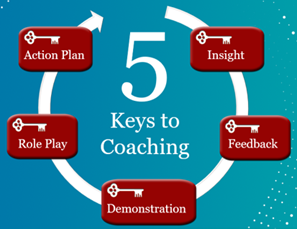There are specific traits that skilled salespeople possess in order to build strong relationships with prospects or clients.
They create a great client experience by providing value, asking the right questions, listening to understand, and demonstrating patience.

Client service or selling, what is the difference? If you will think for a moment about your own buying experiences. When I shop on Amazon, I actually now look for the recommended and related items and often will purchase them. Recently I was at a big box store making a tech purchase and had the benefit of working with a great salesperson who asked all the right questions to steer me to the right item. Ray (the salesman) didn’t “sell” me the item, however, he did help me explore what features I needed and provided options. With his knowledgeable questions, Ray helped me come to the right choice and purchase decision. Some may call this service, but this is really selling because service is in the heart of all great salespeople.
I am going to borrow from the wonderful book Go-Givers Sell More by Bob Burg & John David Mann for this post. Bob and John David have identified The Five Laws of Stratospheric Success and these include: The Law of Value, The Law of Compensation, The Law of Influence, The Law of Authenticity, and The Law of Receptivity
Let’s look at the Law of Value first. Here is what Bob and John David say about that: Your true worth is determined by how much more you give in value than you take in payment. Now that is a wonderful definition. In addition, we know from our sales data source Objective Management Group that there are specific traits that skilled salespeople demonstrate when they build value for a prospect or client and these are:
- Focused on value over price
- Knows & believes in their value
- Comfortable discussing money
- Always positions value
- Sales process supports value
- Learns why prospects will buy
- Asks enough & great questions
- Avoids making assumptions
- Not compelled to provide a term sheet
 Think about your own best salespeople. Do they build a great client experience because they ask enough of the right great questions and do not assume anything? Value-based selling is trainable and should be a focus for your organization’s customized sales training in the future.
Think about your own best salespeople. Do they build a great client experience because they ask enough of the right great questions and do not assume anything? Value-based selling is trainable and should be a focus for your organization’s customized sales training in the future.
Let’s look at one more of Bob and John David’s Five Laws – The Law of Influence, which they describe as; Your influence is determined by how abundantly you place other people’s interests first. All organizations recognize that the days of showing up with your box of products are over, in large part because the buying process is in the hands of the prospect now. So, if everything can be found online, how do you differentiate as a banker or an insurance or investment advisor? Consultative sellers put other people’s interests first with their core selling skills and behaviors. Borrowing from our 30+ year sales data warehouse again, here are the skills and traits of consultative and caring salespeople:
- Able to stay in the moment
- Uncovers compelling reasons to buy
- Able to listen/ask with ease
- Will build trust
- Able to ask tough questions
- Takes nothing for granted
- Has appropriate amount of patience
- Develops strong relationships
- Presents at the right time
- Has a healthy skepticism
How good are your client-facing people with listening with ease and demonstrating the appropriate amount of patience? Are they building relationships or are they taking care of the transaction at hand?
As you evaluate your sales team and your client servicing, it makes sense to think about how your sales process integrates with a great client experience. According to Bob and John David, “Selling is not at its core a business transaction; it is first and foremost the forging of a human connection.”







.png?width=400&name=Screenshot%20(71).png) One of the most difficult skills for most sales managers to overcome is their need for approval from their salespeople. Coaching is different than managing and requires clear direction, discussion, examples, and even demonstration of what is expected of a salesperson. This can be hard for a manager, who also wants their team to like them. They may not want to come off as critical. Coaching sales behaviors is an art, not a science and a sales leader must be adept at asking, listening, and staying focused on developing salespeople to be their best.
One of the most difficult skills for most sales managers to overcome is their need for approval from their salespeople. Coaching is different than managing and requires clear direction, discussion, examples, and even demonstration of what is expected of a salesperson. This can be hard for a manager, who also wants their team to like them. They may not want to come off as critical. Coaching sales behaviors is an art, not a science and a sales leader must be adept at asking, listening, and staying focused on developing salespeople to be their best.

